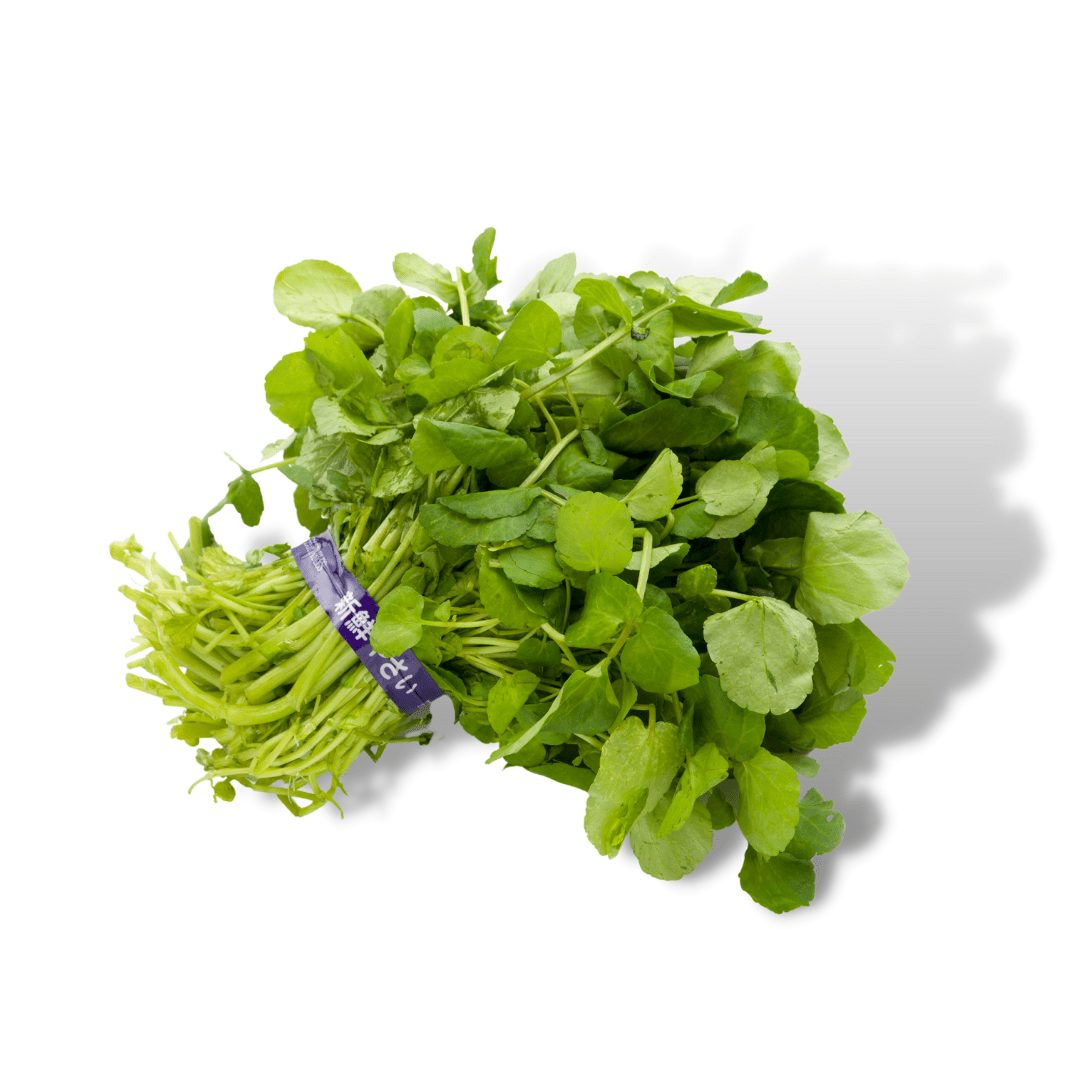About
Watercress is a leafy green vegetable that is closely related to mustard greens and cabbage. It has a peppery and slightly bitter taste and is commonly used in salads, soups, and sandwiches. Watercress is packed with nutrients and has been used for medicinal purposes for centuries.
Health Benefits:
- Rich in nutrients: Watercress is a nutrient-dense vegetable and is an excellent source of vitamins and minerals such as vitamin C, vitamin K, calcium, and iron.
- Supports bone health: The high levels of vitamin K and calcium in watercress help to support bone health.
- Promotes digestion: The fiber content in watercress aids in digestion and can help prevent constipation.
- Boosts immunity: The high levels of vitamin C and other antioxidants in watercress help to boost the immune system.
- May reduce the risk of chronic diseases: Watercress contains phytonutrients that have been linked to a reduced risk of chronic diseases such as cancer and heart disease.
Diseases that can be cured:
While watercress cannot cure diseases, consuming it as part of a healthy diet may help to reduce the risk of certain diseases, such as:
- Cancer
- Heart disease
- Diabetes
- Osteoporosis
Nutrient Content:
Energy and Macronutrient Content per 50g Serving
| Nutrient | Amount |
|---|---|
| Calories | 4 |
| Carbohydrates | 0.4 g |
| Protein | 0.8 g |
| Fat | 0.1 g |
| Fiber | 0.2 g |
| Water | 47 g |
Vitamin Content per 50g Serving
| Vitamin | Amount |
|---|---|
| Vitamin A | 213 mcg |
| Vitamin B1 (Thiamin) | 0.01 mg |
| Vitamin B2 (Riboflavin) | 0.02 mg |
| Vitamin B3 (Niacin) | 0.2 mg |
| Vitamin B6 | 0.02 mg |
| Vitamin B12 | 0 mcg |
| Vitamin C | 43 mg |
| Vitamin D | 0 mcg |
| Vitamin E | 0.2 mg |
| Vitamin K | 250 mcg |
| Folate | 9 mcg |
| Biotin | 0 mcg |
Mineral Content per 50g Serving
| Mineral | Amount |
|---|---|
| Calcium | 41 mg |
| Iron | 0.2 mg |
| Iodine | 0 mcg |
| Zinc | 0.1 mg |
| Magnesium | 6 mg |
| Phosphorus | 12 mg |
| Potassium | 112 mg |
| Sodium | 10 mg |
| Chloride | 13 mg |
| Copper | 0.02 mg |
| Chromium | 0 mcg |
| Fluoride | 0 mcg |
| Molybdenum | 0 mcg |
| Manganese | 0.1 mg |
| Selenium | 0 mcg |
What are the health benefits of watercress?
Watercress is rich in vitamins, minerals, and antioxidants that promote overall health, including improved digestion, enhanced immunity, and potential cancer-fighting properties.
What are some delicious watercress salad ideas?
Try combining watercress with ingredients like strawberries, goat cheese, walnuts, and a tangy vinaigrette for a refreshing and nutritious salad.
How can I make watercress soup?
Watercress soup can be made by sautéing onions and garlic, adding vegetable broth, potatoes, and chopped watercress, and simmering until tender. Blend until smooth and enjoy!
What is the nutritional value of watercress?
Watercress is low in calories and high in vitamins A, C, K, calcium, iron, and antioxidants, making it a nutrient-dense addition to your diet.
How can I incorporate watercress into a healthy diet?
Add watercress to salads, sandwiches, wraps, smoothies, or use it as a topping for pizzas and omelets to increase your nutrient intake.
Does watercress contain vitamin C?
Yes, watercress is an excellent source of vitamin C, which supports immune function, collagen production, and acts as a powerful antioxidant.
Are there antioxidants in watercress?
Absolutely! Watercress contains antioxidants like beta-carotene and lutein, which help protect cells from damage caused by harmful free radicals.
How much iron is in watercress?
Watercress is a good source of iron, a mineral that plays a vital role in carrying oxygen throughout the body and maintaining energy levels.
Can watercress contribute to calcium intake?
Yes, watercress contains a moderate amount of calcium, which is essential for strong bones and teeth, as well as muscle and nerve function.
Can watercress aid in detoxification?
Yes, watercress is known for its detoxifying properties as it contains compounds that support liver function and assist in the elimination of toxins from the body.
How does watercress boost the immune system?
Watercress is packed with vitamin C and other immune-boosting nutrients, which help strengthen the immune system and protect against infections.
Can watercress be beneficial for weight loss?
Watercress is low in calories and high in water and fiber, which can help promote feelings of fullness and support weight management as part of a balanced diet.
How does watercress promote digestive health?
Watercress is rich in fiber, which aids in digestion and supports a healthy digestive system by promoting regular bowel movements.
Does watercress have anti-inflammatory properties?
Yes, watercress contains anti-inflammatory compounds that may help reduce inflammation in the body and potentially alleviate symptoms of inflammatory conditions.
What is the role of vitamin K in watercress?
Watercress is an excellent source of vitamin K, which is crucial for blood clotting, bone health, and may contribute to heart health.









